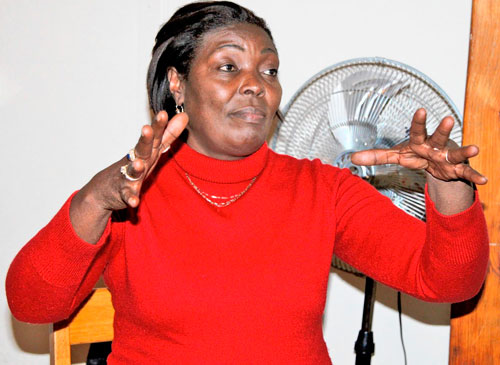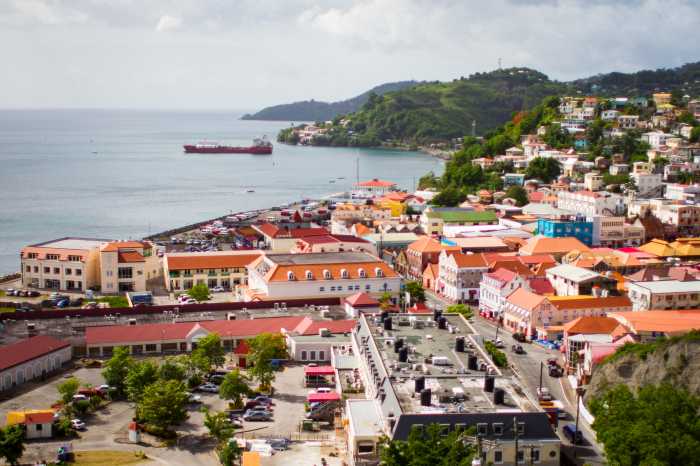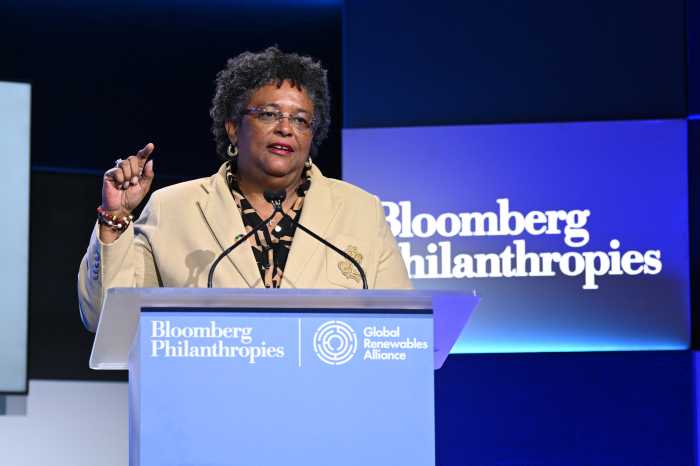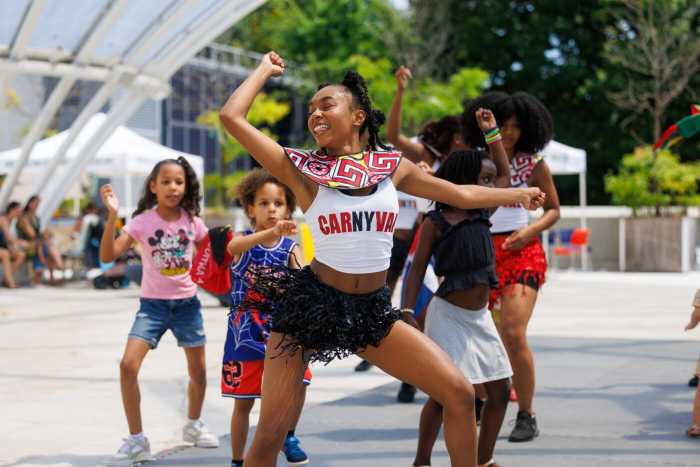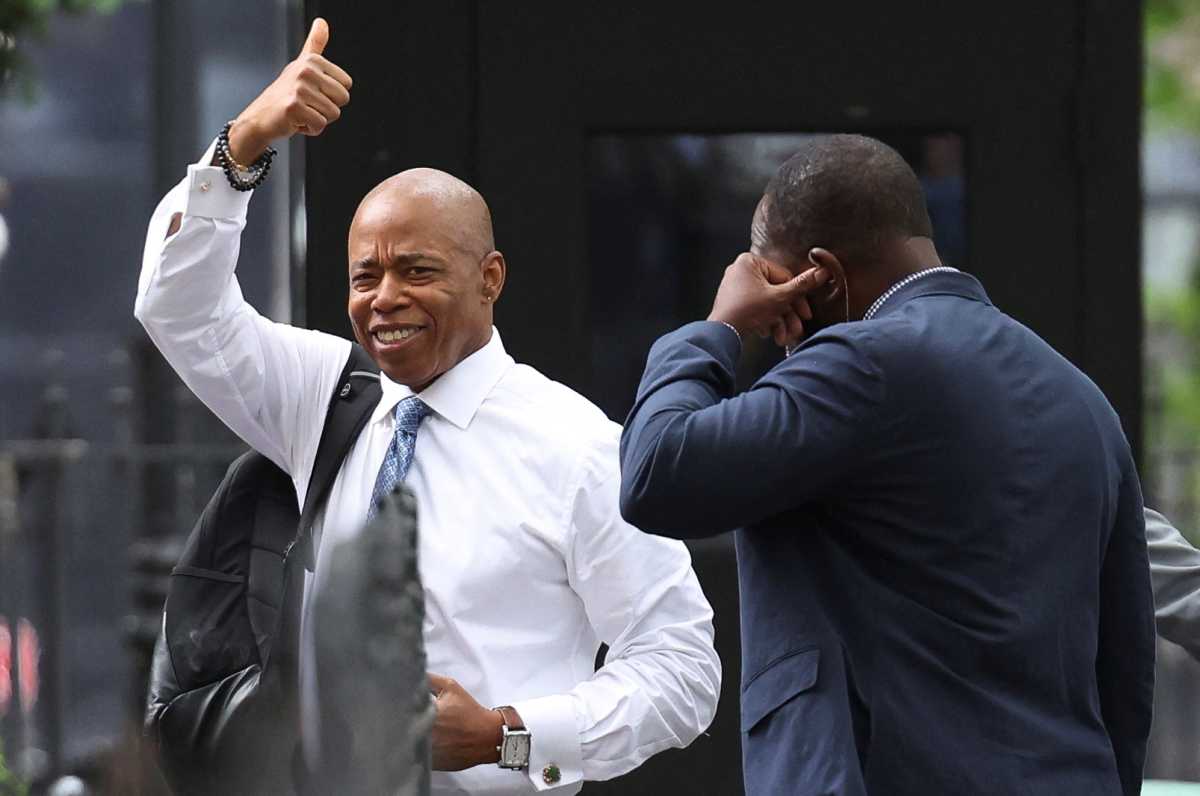“What a big loss,” writes Mauritia St. Fleur. “Our sister, our voice, our warrior, our fighter, our cover,” mourns Ms. St. Fleur from the Dominican Republic on the sudden and premature passing of human rights activist Sonia Pierre who died of a heart attack there at the age of 48 on Dec. 4.
Ms. St. Fleur’s mother and Sonia Pierre founded MUDHA, El Movimiento de Mujeres Dominico-Haitiana, in 1983, an organization working on behalf of Haitian and Dominican-Haitian women and girls, and later, all those of Haitian-descent. Sonia, as director of MUDHA, focused on improving lives, particularly those living in the worker camps called bateyes and fighting for the right to a nationality for children of Haitian-descent born in Dominican Republic.
Ms. St. Fleur is expressing what the Haitian community feels in the tremendous loss of their greatest advocate. Her death sent shock and great sadness through the Haitian, Haitian-American and Dominican-Haitian communities. Ms. Pierre had two open-heart surgeries in the last decade, one in the early 2000s, and the other in 2007. In addition to the hundreds she has helped and her human rights colleagues, she leaves four children and two grandchildren.
For over a century, Haitians have turned to the Dominican Republic for work, first cutting cane and picking produce, more recently as laborers. Sonia’s advocacy against discrimination began at the age of 13, among the cane cutters.Some Dominican-Haitian families have been in the country for three or four generations without papers.
Sonia Pierre died just days after a decision was rendered by the Dominican Supreme Court instructing civil registry officials to suspend identity documents to Dominican citizens and those born to “foreigners residing illegally in the country” (on “Circular 17, together with “Resolution 012”).
The Supreme Court denied the 2008 appeal by Emildo Bueno Oguis, who, despite being born in the Dominican Republic and living and working there all his life, had been stripped of his citizenship under these policies by the Dominican government, simply because his parents were Haitian. By upholding this policy, the court effectively de-nationalizes Dominican citizens of Haitian descent, leaving them stateless.
Through the years, Sonia Pierre has been the target of constant threats and harassment in her advocacy on behalf of Dominican-Haitian citizenship rights. Her photograph has been posted around Santo Domingo as public enemy number one. This past year, the social/political climate has been particularly reactionary.
Additionally, not well received was Hillary Clinton’s statement at a press conference in Santo Domingo this past October when she said, “All countries have the obligation to protect the human rights of immigrants so there must be a solution which recognizes those human rights.” Santiago Archbishop Ramon dela Rosa y Carpio later countered that “the U.S. should practice what it preaches.”
In late October, Sonia attended an international conference in Washington, D.C. on Statelessness and the Right to Nationality.
MUDHA annually holds an international human rights conference in Santo Domingo on the weekend around Human Rights Day, Dec. 10. With a sense of the mood, Sonia Pierre had planned a rally in Santo Domingo instead; the permit issued months ago. Sonia died five days before the rally.
The rally went on as planned, the day after her Dec. 7 funeral that was attended by family, friends, Haitian diplomats, and supporters from the U.S.
The Dominican government’s attempts to thwart the rally because MUDHA’s director had died were unsuccessful. Hundreds of supporters and a coalition of 20 groups rallied outside the Supreme Court against the policy that denies thousands of Dominicans access to a birth certificate and identity card.
Among the protesters was 14-year-old Melania Richard, born in the DR whose ancestors came from Haiti. She carried a sign that read: I am Dominican, you know it. “If I don’t get a copy of my birth certificate, I will have to quit school,” she said.
The protestors also paid homage to Sonia Pierre. At the rally, her daughter, Manuela Solaine, said, “Today, another Sonia Pierre is born. She lives in the Dominican-Haitian people.”
The Court’s decision, a done deal? “Not as long as we’re fighting,” says Ninaj Raoul, of Brooklyn-based Haitian Women for Haitian Refugees, MUDHA’s sister organization, who attended the funeral and the rally, and was impressed by the rally’s numbers.
Nonprofit organizations have said that at least 1,600 Dominicans have been denied their documents. These groups have filed complaints with the Inter-American Commission of Human Rights, which is holding hearings on the matter.
On Dec. 10, Human Rights Day, friends of Sonia came together in remembrance at Gran Chimen Haitian Cultural Center on Rogers Ave. in Brooklyn. By late afternoon, the place was full. Projected were photos of Sonia in action: Speaking, holding a child in the bateyes or receiving the RFK Award for Human Rights in 2006, reminding those in the storefront center of her vibrancy and determination. Sonia also had received an Amnesty International Award in 2003 and Women of Courage Award from Hillary Clinton in 2010.
With the slideshow of the humanist and activist as a backdrop, almost each and everyone in the room spoke of times shared with Sonia or what she meant to the community.
Myriam Neptune, who worked with Sonia and MUDHA and directed two related short films, “Under the Sun” and “The Birthright Crisis Focus on Dominican-Haitians,” said that Sonia Pierre wanted to end discrimination for all people and believed that “flood, violence, poverty, lack of health care and education don’t discriminate.”
Belotte Antoine spoke of Sonia’s fight for security for women and girls in the bateyes. “It’s hard for women, they can’t turn to get justice,” Belotte said, and that with no papers and no (official) identity, they had no recourse, they could ask, “Who is fighting for me?” Sonia Pierre fought for them.
Some people at the remembrance had visited bateyes with Sonia. Maud Pierre said, “I met people with no bed. …a man who have lived in the bateye for 60 years and had nothing.” Gigi Romain spoke directly, “She died of a broken heart. Our ancestors fought for freedom. In 2011, Haitians are still living in plantations. The conditions are atrocious. The spirit of Sonia Pierre is to be engaged in the Dominican Republic and Haiti.”
There was more than one friend and colleague who held back tears as they spoke. One friend distilled Sonia’s work– belief in education, organizing and commitment.
As the afternoon wrapped up, everyone gave Sonia a “thank-you.”
Thank you Sonia for following your spirit. Thank you Sonia for fighting for all of us. Thank you for fighting for women and girls, for giving the struggle a face, for representing Haitians. Thank you for your work. We will always remember you. In Kreyol, someone spoke the proverb: You can cut the branches, but the root will grow a tree again.


